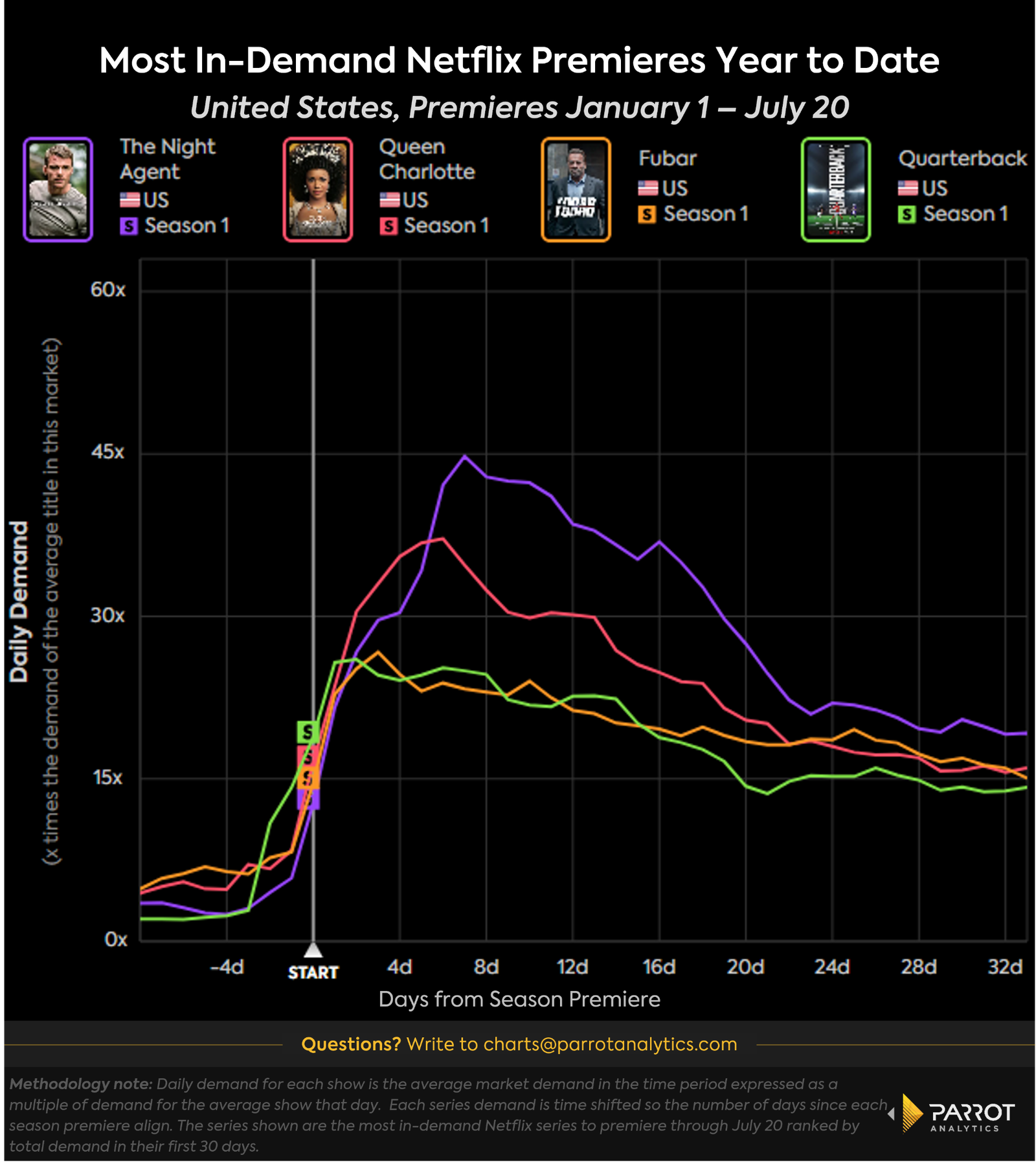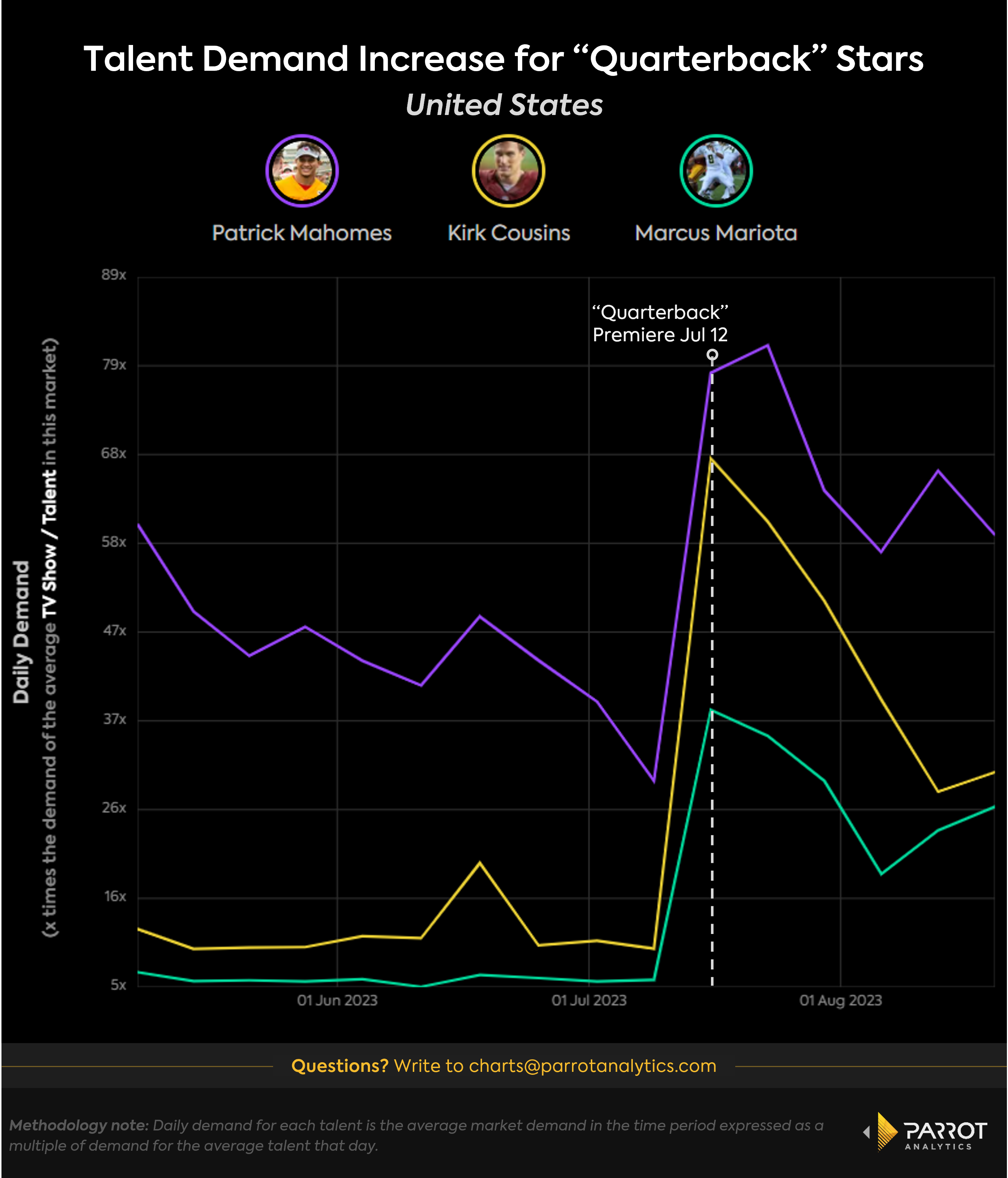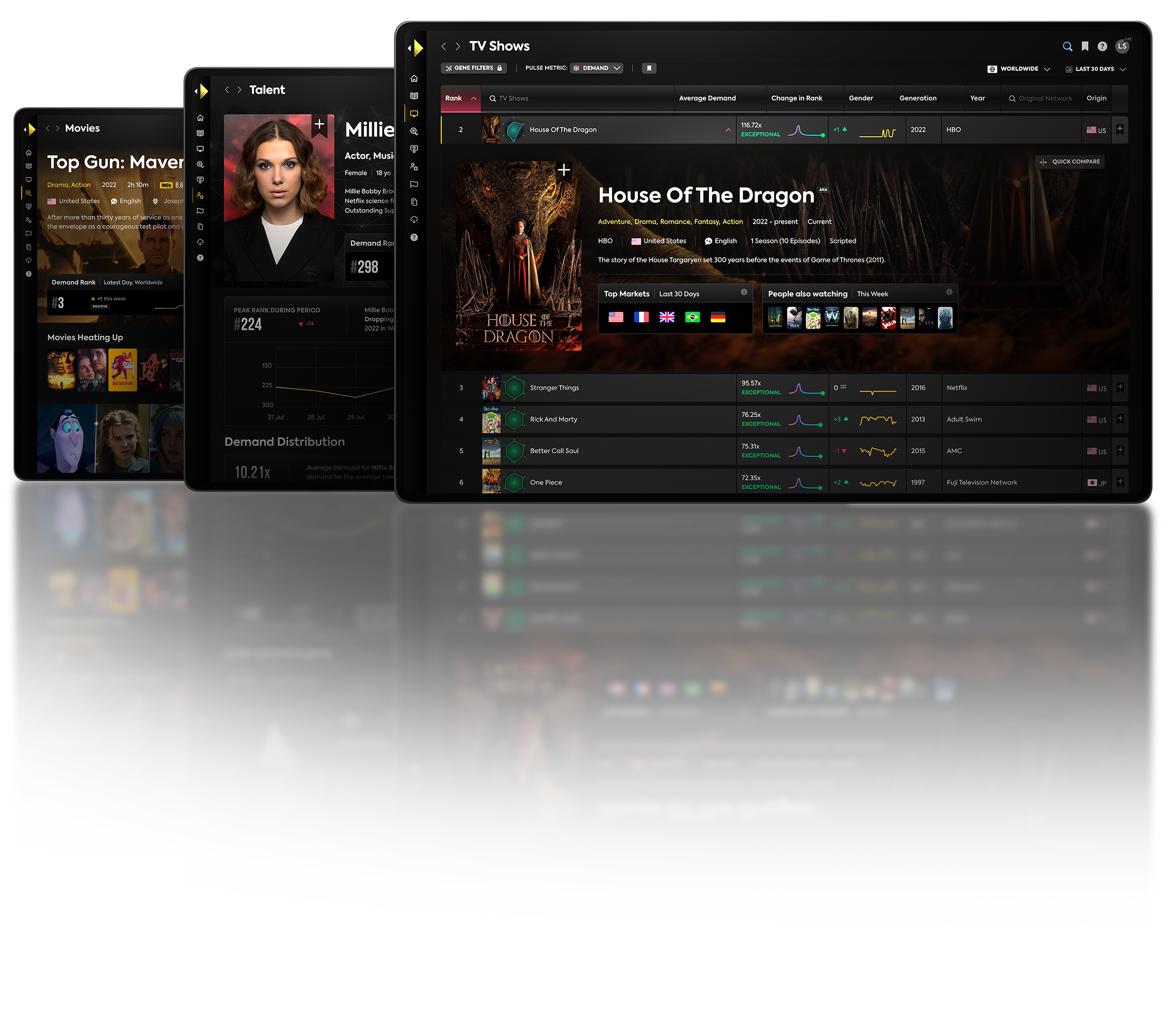Image: Quarterback, Netflix
Streamers have yet to figure out how to effectively tap into the massive attention audiences give to sports. While some platforms are bidding up the prices for the rights to live sports, like Apple for MLS and Prime Video for Thursday Night Football, to say nothing of the impending NBA rights deal, Netflix appears to be happy to focus on sports-adjacent content at the moment. During Netflix’s latest earnings call Ted Sarandos said “We really think that we can have a really strong offering for sports fans on Netflix without having to be part of the difficulty of the economic model of live sports licensing.”
By not making a massive financial bet on the rights to a single league Netflix can bring a variety of sports content to its users all year without being tied to the cycles of sports seasons. The streamer already has a track record of success with this type of sports-adjacent content. Formula 1: Drive to Survive just released its fifth season this year and has become a reliable staple in the genre for Netflix, consistently ranking among the most in-demand documentaries of any type on the platform. It was arguably the outstanding success of ESPN/Netflix coproduction The Last Dance in 2020 that kicked off a surge in the number of sports documentaries.

So far this year, Quarterback has been the fourth most in-demand new Netflix original in the US. The show had 19.8 times the average series demand in its first 30 days placing it behind only three other new releases from Netflix this year including major hits like The Night Agent and Queen Charlotte: A Bridgerton Story. This highlights how sports-adjacent content like this can be broadly successful.
An added benefit for Netflix is that this type of content has the potential to see a renewed spike in demand as the football season gets underway and its stars are again in the spotlight. In this way the platform can profit indirectly from a sports season without having to spend big for the rights.

It is not only Netflix benefitting from the success of “Quarterback,” the three athletes featured in the show have all seen a spike in their talent demand since the show premiered and have maintained a higher level of audience attention more than a month since the premiere date. Of the three, Kirk Cousins and Marcus Mariota saw the biggest lift in their demand. Patrick Mahomes already had a significant level of demand before the show and consistently ranked among the most in-demand athletes in the US. Even so, it still looks like starring in the show was able to raise his profile with US audiences.
Additionally, an analysis of the sentiment for these athletes helps to give some context to the increase in their demand. In the 30 days following the show premiere all three quarterbacks saw an increase in the share of positive conversation about them compared to the prior 30 days. An increase in their overall attention combined with more positive sentiment makes agreeing to be featured in this show seem like a no-brainer for the talent. This should help Peyton Manning (the executive producer) convince a new cohort of QBs to sign up for season 2 now that the show has been renewed by Netflix.



